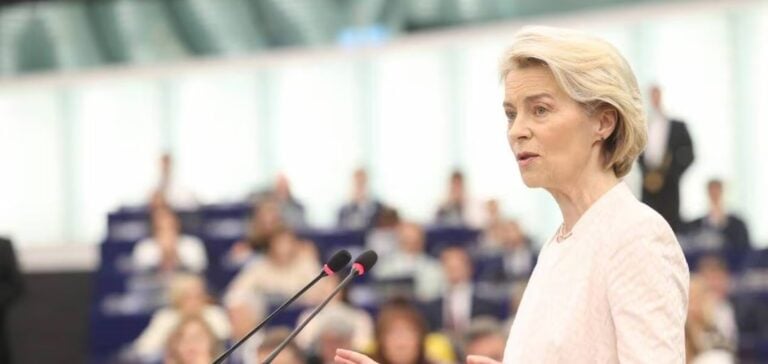Ursula von der Leyen, President of the European Commission, recently reiterated her support for synthetic fuel technology. This position is part of the drive to achieve climate neutrality for new cars by 2035. This support is crucial to prolonging the use of combustion engines in Europe, despite new regulations on CO2 emissions.
The decision to promote synthetic fuels comes after intense discussions within the European Union. In March 2023, the EU had initially decided that new cars should be CO2-free from 2035. This measure was seen as a victory for the electric vehicle sector. However, Germany and its influential automotive industry argued for an opening in favor of synthetic fuels, thus obtaining a compromise from the Commission.
Synthetic Fuels: A Controversial Solution
Synthetic fuels are produced from CO2 captured from industrial activities and green hydrogen. This technology promises to transform CO2 into a fuel that can be used in conventional combustion engines, thereby reducing the carbon footprint without abandoning existing infrastructures. However, environmental NGOs dispute this solution as costly and energy-intensive.
von der Leyen’s support for synthetic fuels, set out in a recent policy document, indicates a desire to maintain technological diversity in the ecological transition. It proposes a targeted modification of current CO2 emission regulations to incorporate this technology. This approach is designed to address the concerns of the European automotive industry, particularly German and Italian luxury manufacturers.
Prospects and challenges
The future of synthetic fuels will depend on a number of factors, including technological advances and production costs. At present, this technology is still in the development phase, and its widespread adoption remains uncertain. Experts believe that, even if it does materialize, it will probably only affect a minority of top-of-the-range vehicles.
The debates surrounding this technology highlight the tensions between Europe’s ambitious climate objectives and economic and industrial realities. Carmakers need to balance technological innovation and economic viability, while meeting the expectations of consumers and regulators.
The European Commission’s support for synthetic fuels reflects a pragmatic approach to the energy transition. By integrating this technology into the decarbonization strategy, the EU hopes to maintain the competitiveness of its automotive industry while making progress towards its climate targets. This approach illustrates the complex challenges of the ecological transition, requiring innovative solutions and ongoing commitment to achieve true carbon neutrality.






















